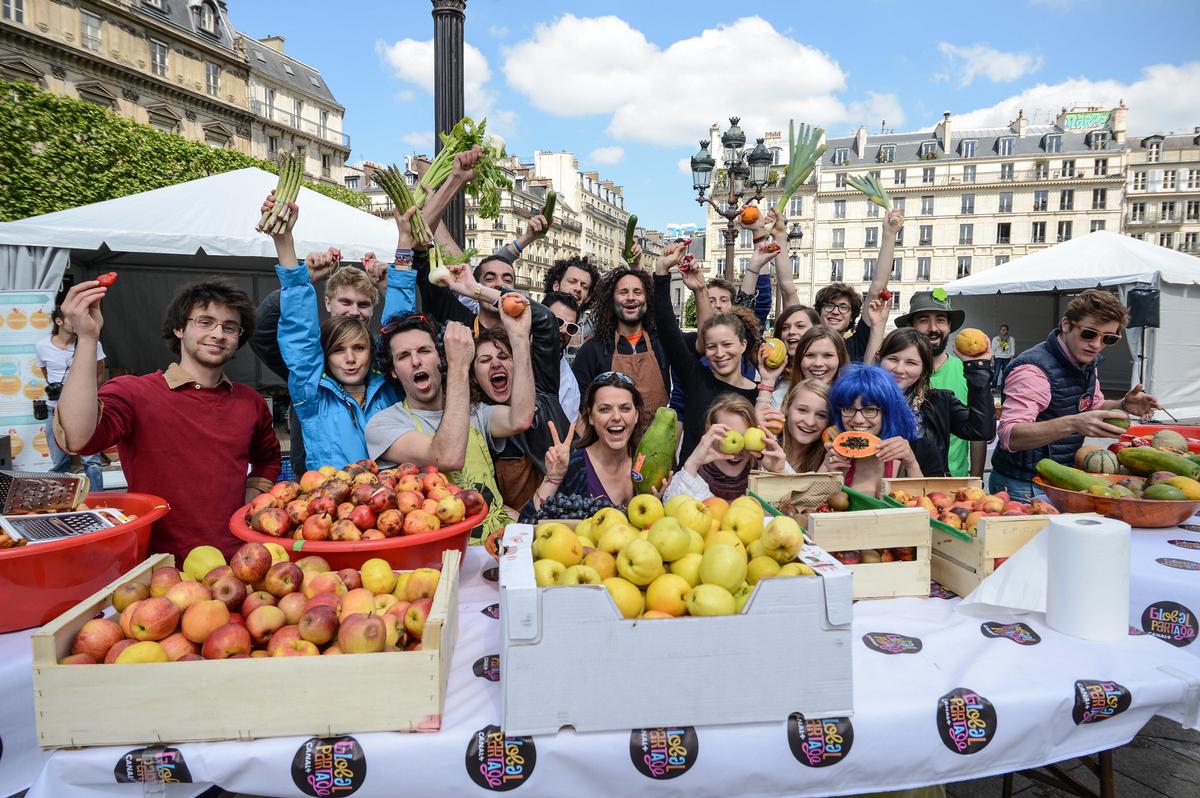The young African farmer, who has taken over as president of Slow Food from Italian founder, Carlo Petrini, has been harnessing the power of kitchen gardens to inspire change
The young African farmer, who has taken over as president of Slow Food from Italian founder, Carlo Petrini, has been harnessing the power of kitchen gardens to inspire change
When Edward Mukiibi began to grow tomatoes at his home in Uganda, he had no idea it would change thousands of lives. Including his own.
Today, the young African farmer is the new president of Slow Food. He takes over from the influential organisation’s legendary Italian founder, Carlo Petrini who has led Slow Food since 1986, when it launched on Rome’s Spanish Steps — the same year Edward, popularly known as Edie, was born.
Edward Mukiibi teaching school children in Uganda how to grow vegetables
| Photo Credit: Slow Food Archive
With active communities in over 100 countries, the global movement defends biological and cultural biodiversity, encouraging people to eat and advocate for food that is ‘good, clean and fair.’ Working with policy makers, local communities and activists, Slow Food is quick to adapt to a rapidly changing world, largely because of its enthusiasm for mentoring young leadership.
Read More | Eat, pray, love
Over a call, Edie talks fondly of his family’s farm in the small village of Kisoga, in Uganda’s Mukono district. It is here he began working with schools, encouraging students to set up small, organic vegetable gardens. “I studied agriculture at university, and was born in a farming community,” he says, “My parents have a small farm, where they grew a lot of tropical crops, coffee, banana, beans, maize… and fruit trees along the boundary.”
At university, he says his work with local farmers taught him the value of traditional methods of agriculture. “When hybrid seeds failed because of the drought — they were disappointed, and so was I. We realised that with mixed farming, even with drought, farmers would not lose 100% of their crop.”

Disco Soup, which combats food waste, draws young, diverse volunteers
| Photo Credit: Slow Food Archive
Edie began to work with the farmers to rebuild traditional systems and rebuild trust. “We began using regenerative approaches, permaculture and agroforestery. We started working with plants that are resilient, so even with strong winds or drought you will have something to harvest, something to eat. We began working with heritage millets…”
By 2008, he was 22 years old and getting a bit overwhelmed by the magnitude of this project. “It was a heavy job to do alone. I started looking for organisations working to truly transform the food system. That’s when I was invited to Slow Food’s Terra Madre event in Italy to share my story.”
Edie described it as a life-changing visit. “I realised I didn’t make a mistake when I chose to work with resilient agricultural systems. I realised there are millions doing the same work around the world… It is an emotional moment for people feeling lost — you feel you are part of something big, part of a solution.”
A shot from a farm following traditional agriculture practices
| Photo Credit: Slow Food Archive
He returned to Africa to work with school gardens. “They were using farming as a punishment for students. I wanted to change that negative attitude,” says Edie, adding that Slow Food has always had a strong approach to education through gardens, where students learn to grow their own food.
Inspired by meetings with educators like the iconic Alice Waters, Edie began to collaborate with young leaders from different African countries to revive indigenous farming systems, and their inspirational ‘1000 Gardens In Africa’ project began to pick up speed.
“We have over 3,000 gardens in Africa now, and they are important for food security and sovereignty for communities, families and school. They are also part of our open-air classrooms,” says Edie. “Most people think a garden just produces vegetables: but it also teaches you how to learn to manage resources, and create dialogue with nutrition and school meals.”
All this, he believes is more important than ever before given the challenges the world faces today. “We are in a climate emergency, and need to act quickly. There is a looming water crisis. We have a food crisis in many parts of the world…”
Workers at a farm following traditional agriculture practices
| Photo Credit: Slow Food Archive
It may seem naïve to believe that an idealistic organisation like Slow Food can have a significant impact, without political machinations and corporate funding, at a time like this, but Edie is optimistic about the power of grassroots movements. “Slow Food has also evolved into a complex ecosystem — this gives us the strength to tackle complex challenges using a local approach and local wisdom…” he says. “I have been a farmer all life — my story is part of hundreds of stories out there: We are all part of the change.”
A younger, more diverse leadership is likely to be able to pivot faster and adapt to new challenges. After all, as Edie points out, “the world is growing younger — In Africa alone, 70% of the population is below the age of 40.” Emphasising that Petrini will still be on the board as an adviser so the transition is seamless, he adds, “This is a period of regeneration for Slow Food. To work together and embrace a diversity of ideas.”
























